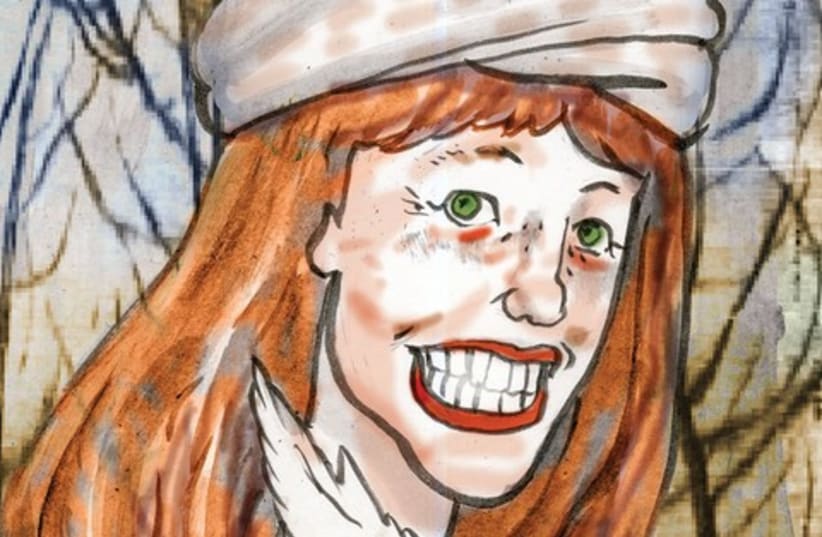knew where the coffin lay in the Nile?
The adopted daughter of Asher was
not counted among those who
entered the land of
the Nile.
Yet when Moses approached her
already old she remembered Joseph’s
bones and the
words
to raise them. The exact spot. What
else was entrusted to the woman of
the Nile? Zisquit takes an organic approach to this rigorous system. A Jewish poet of Jerusalem, she layers this adopted Islamic art form with Jewish and Biblical texts. That sets her apart from others writing ghazals in English. Having lived her life in two different countries, in two different languages, she brings to these poems the émigré’s passion for reckless exploration.The poet is also an experienced translator, and therefore no stranger to literary shape-shifting. The fact that Zisquit arrived in Israel in February of 1978, with not much knowledge of Hebrew, did not deter Israeli poets, Gabriel Levin and Zali Gurevitch, then editing the Israeli issue of New Jerseybased “The Literary Review,” from urging her to translate a couple of poems by the groundbreaking feminist poet Yona Wallach into English for their journal.Justifiably intimidated (Zisquit admits that Wallach’s poems were “grammatically complex” and the request was made the day after she made aliya), she nonetheless agreed. Since then, she has published translations of selected works of Yehuda Amichai and Rivka Miriam as well as a collection of Wallach’s verse.To appreciate the stylistic leap Zisquit has taken in this new book, one need only compare “Passage: Nile” to an earlier Biblically-themed poem, “Amnon,” from her 1996 collection “Unopened Letters.”I’ve had her, she’s nothing.
Lay her damp on the quilt-
covered floor, pant, chasten her
with love, she’ll get up in ashes.Zisquit’s first two volumes (“Unopened Letters” was preceded in 1993 by “Ritual Bath”) are filled with compact, sensual lines that can often be tough and mysterious, that are always evocative.This is from “Ritual Bath’s” “Summer at War” segment, from the poem, “The Ant”:Each morning this June
I wake in the pit of my belly.
Goldenrod, fuchsia, peonies
tightly fragrant on the inside
of my flesh. How to open
the fist of petal, speak with a man
I never lay with, never tasting
his long, lengthwise odor,
undoing his skin like the ant
for the brightness beneath.Themes of romantic love and longing are staples of the ghazal, so it might be said that Zisquit’s early poems were part of an unconscious birthing process.IN HER 2004 COLLECTION “THE Face In The Mirror,” a confessional volume in which the poet works at unraveling her troubled relationship with her dying mother, her lines are often long (as they will be again in “Ghazal Mazal”), expanded by pain, by her attempt to let nothing slip away, to get it all down. The long lines in “Ghazal Mazal” were a surprise to the author, as she had been working for years on an epic inward poem on the nature of change called “Porous,” consisting of many stanzas of short lines, mere fragments at times, with lines of a single word. It may have brought her to the point of needing “to stretch a little.”Zisquit humorously incorporates in her poetry the tensions of being a free-verse poet daring to make her way in this brave new world of structural orthodoxy. In “Ghazal: Ache,” we find her in a kind of wry Chaplinesque way pushing the envelope.It doesn’t have to be a ghazal
if it comes in some other form, or ache.
But the continuing line the couplet
with the penultimate rhyme, more ache
than comfort, especially when you
break
the pattern at the start, core ache.
It doesn’t have to be the same each day
you can stare at the page, or go for ache.The spirit of experimentation comes to Zisquit by way of her mentor and friend, the great beat poet, Robert Creeley. She studied with Creeley at the University of Buffalo before making aliya. Creeley was the master of short, elliptical lines as precise as they were original (“This face was detachable/ as blurred head itself/ lifted from old bookcover,” Creeley wrote in “Self Portrait.”)Zisquit remembers him in this book in the free-verse poem, “Song”:Your death, your fading
voice
do not leave silence
in your place.
A girl in Buffalo again
I read your poems
your violent loves
like a fist in my brain
opening opening,
your letters speak, your
irritations
rise up now to protect me Eventually, after reading all of Zisquit’s poetry, one finds oneself asking, “Why so few books over so many years?” The overriding answer is time: Zisquit has raised five children in Israel and runs the Artspace Gallery in Jerusalem, in addition to her teaching and translating.She has described her poems as “being written in the cracks of her life.” They are also written far from the poetry enclaves of her native country, with their far-flung literary publishing houses and overtaxed editors.Finding American publishers for her work has not always been easy. It has led her to feel at times like a poet without an audience.There is a strain of existential loneliness in some of Zisquit’s ghazals in keeping with the form’s recent history of displacement. It is to be found in her early poems as well. In “Ritual Bath,” in the poem “Legends of the Bible,” she writes:When I turn, I am uncovered/ like
labor induced by a butcher
In ‘Ghazal: Me,’ it surfaces powerfully:This room provides. Sunlight. A chair.
An old table for me.
If I come here without a book I am
left to grapple with me. •
